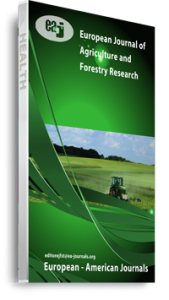Wheat is one of the major cereal crops grown in Lesotho, ranking third after maize and sorghum. Cultivars of wheat are imported from South Africa without characterization. The study was therefore conducted with the following objectives; (1) to distinguish wheat cultivars grown by farmers, (2) to estimate genetic distance among wheat cultivars and (3) to identify the characters that have high discriminatory power. Complete Randomized Block Design with ten treatments and three replications were applied. Data were collected using Descriptor and analysed using GENSTAT software to perform cluster and principal component analysis. The first three principal components constituted 84.572% of the total variation. First principal component variation accounted for 55.738%, while second principal component contributed 15.737% and third principal component constituted 12.858%. Characters responsible for variation in the first component were spikelets, spike height and tillers. Separation among second component was brought about by plant height, reproductive tillers and seeds per spike. Variation in component three was due to glume hairiness, seed size and plant height. Cluster analysis formed two groups, A and B, and one outlier. Group A comprised of Gariep, Koonap, Elands and Senqu while Group B consisted SST374, SST356, PAN3195, PAN3379 and TugelaDN. Group C was an outlier containing Matlabas. The findings showed that the cultivars were different from each other and as such genetic variation exists that broaden the spectrum of germplasm, from which farmers can make a wider choice.
Keywords: Cluster analysis, Lesotho, Principal Component Analysis, Wheat, morphological characters

